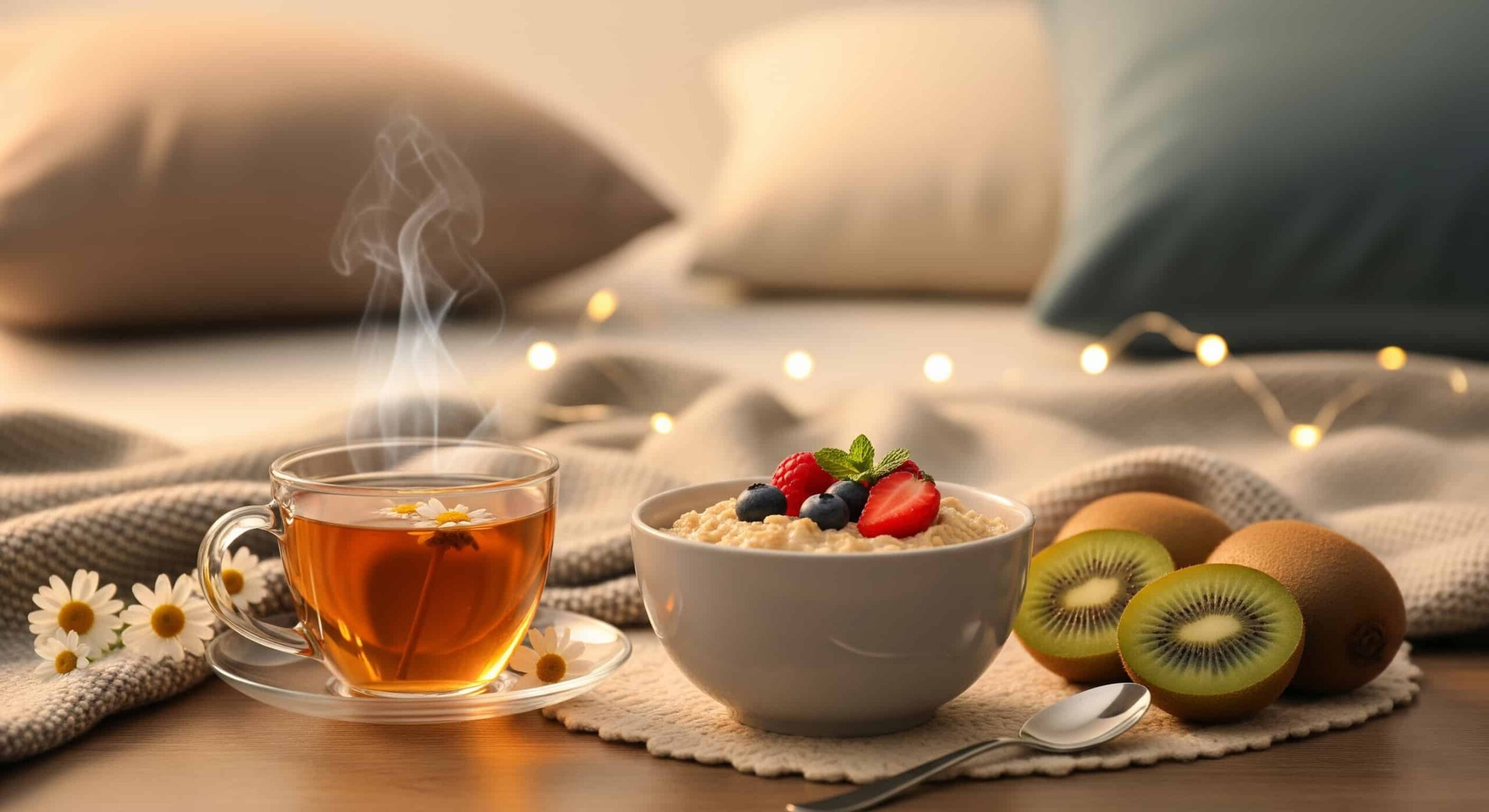Keywords: foods for sleep, diet and insomnia, sleep-inducing foods, foods that disrupt sleep, nutrition for better sleep, what to eat before bed
"You are what you eat" – this adage extends profoundly to the quality of our sleep. The foods and drinks we consume throughout the day, especially in the hours leading up to bedtime, can significantly impact our ability to fall asleep, stay asleep, and wake up feeling refreshed. Understanding which nutrients promote relaxation and which ones act as stimulants or disruptors is key to harnessing the power of diet for better sleep. Let's explore the culinary friends and foes of a good night's rest.
Foods That Befriend Your Sleep
Certain foods contain natural compounds that can help regulate sleep-wake cycles, calm the nervous system, and promote relaxation.
1. Tryptophan-Rich Foods
Tryptophan is an amino acid that the body converts into serotonin (a mood regulator) and then into melatonin (the primary sleep hormone). Consuming foods rich in tryptophan can help boost melatonin production.
- Turkey and Chicken: Often associated with post-Thanksgiving drowsiness, turkey is a good source of tryptophan.
- Nuts and Seeds: Almonds, walnuts, pumpkin seeds, and sesame seeds are excellent sources. Almonds also contain magnesium, another sleep-booster.
- Dairy Products: Milk, cheese, and yogurt contain tryptophan. A warm glass of milk before bed is a classic sleep remedy for a reason!
- Oats: Besides tryptophan, oats are rich in melatonin and complex carbohydrates that can aid sleep.
2. Melatonin-Containing Foods
Some foods naturally contain melatonin, directly contributing to your body's supply of this sleep hormone.
- Tart Cherries and Tart Cherry Juice: One of the best natural sources of melatonin. Studies have shown tart cherry juice can improve sleep duration and quality.
- Grapes: Certain varieties of grapes are also good sources of melatonin.
- Tomatoes and Peppers: These vegetables contain small amounts of melatonin.
3. Magnesium and Calcium Champions
These minerals play a crucial role in muscle relaxation and nerve function, which are important for sleep.
- Leafy Green Vegetables: Spinach, kale, and Swiss chard are packed with magnesium.
- Bananas: A good source of both magnesium and potassium, which can help prevent nighttime muscle cramps.
- Legumes: Beans, lentils, and chickpeas offer a good dose of magnesium.
- Fatty Fish: Salmon, mackerel, and tuna are rich in Vitamin D and omega-3 fatty acids, which help regulate serotonin and, by extension, melatonin.
4. Complex Carbohydrates
Complex carbohydrates can increase tryptophan availability in the brain. Opt for whole grains over simple, sugary carbs.
- Whole-Grain Bread, Crackers, and Cereals: These provide a steady release of energy and can promote sleepiness.
- Brown Rice and Quinoa: Healthy complex carbs that can be part of a sleep-friendly dinner.
5. Herbal Teas
Certain herbal teas have calming properties that can prepare your body for sleep.
- Chamomile Tea: Known for its relaxing effects, often used to reduce anxiety and promote sleep.
- Valerian Root Tea: Has sedative properties and has been used for centuries to treat insomnia.
- Lavender Tea: The scent and compounds in lavender can have a calming effect.
Foods and Drinks That Sabotage Your Sleep
Just as some foods can aid sleep, others can interfere with it, keeping you tossing and turning.
1. Caffeine Culprits
Caffeine is a well-known stimulant that blocks adenosine, a sleep-inducing chemical in the brain. Its effects can last for several hours.
- Coffee and Caffeinated Teas (Black, Green): Obvious sources. Avoid them at least 4-6 hours before bed.
- Chocolate (especially dark chocolate): Contains caffeine and theobromine, another stimulant.
- Soda and Energy Drinks: Often packed with caffeine and sugar.
- Some Medications: Certain pain relievers, weight loss pills, and cold remedies contain caffeine.
2. Alcohol Antagonists
While alcohol might initially make you feel drowsy, it disrupts sleep architecture, particularly REM sleep, later in the night. This can lead to fragmented sleep and waking up unrefreshed.
- All Alcoholic Beverages: Beer, wine, and spirits can all negatively impact sleep quality if consumed too close to bedtime.
3. Heavy, Spicy, and Fatty Foods
These foods can cause indigestion, heartburn, and discomfort, making it difficult to fall asleep or stay asleep.
- Large Meals Before Bed: Give your body at least 2-3 hours to digest before lying down.
- Spicy Foods: Can cause heartburn and raise body temperature, interfering with sleep.
- High-Fat Foods: Fried foods, rich desserts, and fatty meats take longer to digest and can cause discomfort.
4. Sugary Foods and Drinks
A sugar rush can lead to a crash, potentially disrupting sleep patterns. Fluctuations in blood sugar can cause awakenings during the night.
- Sweets, Candies, and Sugary Desserts: Best avoided in the evening.
- Sugary Drinks: Including fruit juices with high sugar content.
5. Excessive Fluids Before Bed
Drinking too much of anything close to bedtime can lead to frequent bathroom trips, interrupting your sleep.
- Water, Juice, Tea (even decaf): Try to limit fluid intake in the 1-2 hours before sleep.
Tips for a Sleep-Friendly Diet
Timing is Everything
Avoid large meals, caffeine, and alcohol close to bedtime. Aim to finish dinner at least 2-3 hours before you plan to sleep.
Balanced Diet
A generally healthy, balanced diet rich in fruits, vegetables, lean proteins, and whole grains supports overall health, including sleep.
Hydration
Stay hydrated throughout the day, but taper off fluid intake in the evening.
Listen to Your Body
Pay attention to how different foods affect your sleep. What works for one person might not work for another.
Consider a Light, Sleep-Promoting Snack
If you're hungry before bed, a small snack like a banana, a handful of almonds, or a small bowl of oatmeal can be beneficial.
Nourish Your Way to Restful Nights
Your dietary choices play a significant role in your sleep quality. By incorporating sleep-promoting foods and avoiding those that hinder rest, you can create a nutritional foundation for more restful nights.
Remember: Consistency is key, and a holistic approach that combines a healthy diet with good sleep hygiene practices will yield the best results. Small changes in your eating habits can lead to significant improvements in your sleep quality and overall well-being.




